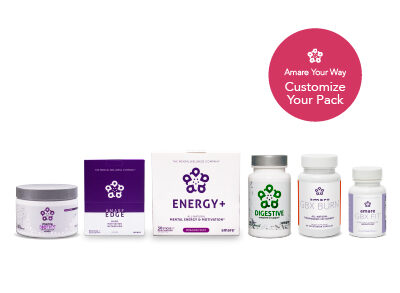In the quest for better health and weight management, the role of gut health has become a focal point of interest for researchers, nutritionists, and individuals alike. The intricate ecosystem of the gut, comprising trillions of microorganisms, plays a crucial role not only in digestion but also in regulating metabolism and immune function. Among the myriad of strategies proposed for optimizing gut health, two terms frequently emerge probiotics and prebiotics. While both offer potential benefits for gut health and weight management, understanding their differences and how they may contribute to overall well-being is essential.

Exploring Probiotics
Probiotics are live microorganisms, primarily bacteria and some yeasts, that confer health benefits when consumed in adequate amounts. These beneficial bacteria are commonly found in fermented foods like yogurt, kefir, sauerkraut, and kimchi. They can also be consumed in the form of supplements, which often contain strains such as Lactobacillus and Bifidobacterium.
The mechanisms through which probiotics exert their effects on gut health and weight management are multifaceted. Firstly, they help maintain a healthy balance of gut flora by crowding out harmful bacteria and supporting the growth of beneficial ones. This balance is crucial for proper digestion, nutrient absorption, and immune function. Secondly, certain strains of probiotics have been shown to reduce inflammation in the gut, which may contribute to conditions such as irritable bowel syndrome (IBS) and inflammatory bowel disease (IBD). Thirdly, probiotics may influence metabolism, leading to improvements in insulin sensitivity and fat metabolism, which could potentially aid in weight management.
While probiotics have shown promise in improving gut health and potentially aiding in weight loss, it’s important to note that their effects can vary depending on the individual and the specific strains used. Additionally, the efficacy of probiotic supplements may be influenced by factors such as dosage, duration of use, and the presence of other nutrients or compounds in the diet.
Unveiling Prebiotics
Prebiotics, on the other hand, are non-digestible fibers that serve as food for beneficial bacteria in the gut. Unlike probiotics, which are live microorganisms themselves, prebiotics act as nourishment for the existing bacteria in the gut, stimulating their growth and activity. Common sources of prebiotics include chicory root, Jerusalem artichokes, garlic, onions, leeks, and certain fruits and vegetables.
By selectively promoting the growth of beneficial bacteria, prebiotics contribute to a healthier balance of gut flora, similar to probiotics. This, in turn, can support improved digestion, enhanced nutrient absorption, and a stronger immune system. Additionally, prebiotics may have a positive impact on weight management by promoting feelings of fullness, reducing calorie absorption, and modulating fat metabolism.
One notable advantage of prebiotics is their ability to reach the colon intact, where they can exert their effects on gut health. This means that even individuals who may not tolerate probiotics well can still benefit from the consumption of prebiotic-rich foods or supplements.
Which Is Better for Gut Health and Weight Loss?
Now comes the million-dollar question: probiotics or prebiotics – which is superior for gut health and weight loss? The truth is, that both play crucial roles in supporting a healthy gut and may contribute to weight management in different ways.
Probiotics offer direct supplementation of beneficial bacteria, which can help restore balance to the gut microbiome and alleviate symptoms of digestive disorders. They may also influence metabolism and fat storage, potentially aiding in weight loss efforts. However, the efficacy of probiotics can vary greatly depending on factors such as strain specificity, dosage, and individual response.
On the other hand, prebiotics provide the fuel that beneficial bacteria need to thrive, fostering a diverse and resilient gut microbiome. By promoting the growth of these bacteria, prebiotics indirectly support gut health and may offer benefits for weight management by modulating appetite and calorie absorption. Furthermore, prebiotics are generally well-tolerated and suitable for most individuals, making them a convenient option for improving gut health.
Integrating Both for Optimal Results
Rather than viewing probiotics and prebiotics as competing entities, it may be more beneficial to consider them as complementary components of a holistic approach to gut health and weight management. By incorporating both into your diet or supplementation regimen, you can maximize their synergistic effects and support a thriving gut microbiome.
In addition to probiotic-rich foods or supplements and prebiotic-rich foods, such as fruits, vegetables, and whole grains, another avenue worth exploring is the incorporation of Natural Weight Loss Supplements. These supplements, formulated with carefully selected ingredients to support healthy weight management, can provide additional support alongside probiotics and prebiotics. By combining these strategies, you can create an optimal environment for gut health and enhance your efforts towards achieving your weight loss goals.
Navigating the World of Natural Weight Loss Supplements
In the vast landscape of supplements marketed for weight loss, it’s essential to navigate with caution and discernment. While there are many products claiming miraculous results, not all of them are backed by solid scientific evidence or may even be safe for consumption.
Natural Weight Loss Supplements stand out due to their focus on ingredients derived from natural sources, often supported by research demonstrating their potential efficacy and safety. These supplements typically contain a combination of botanical extracts, vitamins, minerals, and other bioactive compounds known for their purported benefits for metabolism, appetite regulation, and fat burning.
Among the plethora of natural ingredients commonly found in weight loss supplements, some have garnered more attention than others for their potential efficacy and safety profiles:
- Green Tea Extract: Rich in catechins, particularly epigallocatechin gallate (EGCG), green tea extract has been studied for its ability to enhance metabolism and fat oxidation. It may also have a modest effect on weight loss when combined with a calorie-controlled diet and regular exercise.
- Garcinia Cambogia: Derived from the fruit of the Garcinia gummi-gutta tree, Garcinia cambogia contains hydroxy citric acid (HCA), which has been proposed to inhibit an enzyme involved in fat storage and appetite regulation. However, evidence supporting its effectiveness for weight loss is mixed, and some studies have raised concerns about potential side effects.
- Conjugated Linoleic Acid (CLA): A type of fatty acid found in meat and dairy products, CLA has been investigated for its potential to reduce body fat and increase lean body mass. While some studies suggest modest benefits, others have found no significant effects on weight loss.
- Caffeine: Widely recognized for its stimulatory effects on metabolism and energy expenditure, caffeine is a common ingredient in weight loss supplements. It may also help suppress appetite and increase fat oxidation, although individual responses can vary.
- Forskolin: Derived from the roots of the Coleus forskohlii plant, forskolin has been studied for its potential to stimulate the production of cyclic adenosine monophosphate (cAMP), which may enhance fat breakdown and weight loss. However, more research is needed to confirm its effectiveness and safety.
While these natural ingredients hold promise for supporting weight loss, it’s important to approach supplements with realistic expectations and a critical eye. Keep in mind that supplements should complement a healthy lifestyle that includes balanced nutrition, regular physical activity, and adequate sleep.
Making Informed Choices for Optimal Health and Weight Management
In the quest for better gut health and weight loss, knowledge is power. By understanding the roles of probiotics, prebiotics, and Natural Weight Loss Supplements in supporting your goals, you can make informed choices that align with your individual needs and preferences.
When considering supplementation, it’s advisable to consult with a healthcare professional or registered dietitian, especially if you have underlying health conditions or are taking medications. They can provide personalized recommendations based on your health status, dietary habits, and weight loss goals.
Additionally, prioritize whole foods rich in probiotics and prebiotics as part of a balanced diet. Incorporate fermented foods like yogurt, kefir, and sauerkraut for probiotics, and include plenty of fruits, vegetables, whole grains, and legumes for prebiotics. These dietary choices not only support gut health but also provide essential nutrients for overall well-being.
Exploring Synergies and Lifestyle Factors
Beyond the realm of supplements, several lifestyle factors can profoundly impact gut health and weight management. Incorporating these habits into your daily routine can amplify the benefits of probiotics, prebiotics, and Natural Weight Loss Supplements:
- Regular Exercise: Physical activity not only burns calories but also supports a healthy metabolism and gut function. Aim for a combination of cardiovascular exercise, strength training, and flexibility exercises to promote overall fitness and well-being.
- Stress Management: Chronic stress can disrupt gut health and contribute to weight gain. Practice stress-reduction techniques such as meditation, deep breathing exercises, yoga, or spending time in nature to promote relaxation and resilience.
- Adequate Sleep: Quality sleep is essential for gut health, metabolism, and hormone regulation. Aim for 7-9 hours of uninterrupted sleep per night, and establish a consistent sleep schedule to support your body’s natural rhythms.
- Hydration: Staying hydrated is crucial for digestive health and overall well-being. Aim to drink plenty of water throughout the day, and limit consumption of sugary beverages and alcohol, which can disrupt gut flora and contribute to weight gain.
- Balanced Nutrition: Focus on a diverse diet rich in whole foods, including fruits, vegetables, lean proteins, whole grains, and healthy fats. Minimize processed foods, refined sugars, and excessive intake of saturated and trans fats, which can negatively impact gut health and contribute to weight gain.
- Mindful Eating: Practice mindful eating habits, such as paying attention to hunger and fullness cues, chewing food thoroughly, and savoring each bite. This can help prevent overeating, promote digestion, and enhance the enjoyment of meals.
- Social Connection: Cultivate meaningful relationships and social connections, as they play a vital role in mental and emotional well-being. Engage in regular social activities, connect with friends and family, and seek support when needed.
Embracing a Holistic Approach to Wellness
Ultimately, achieving optimal gut health and sustainable weight management requires a holistic approach that encompasses various aspects of lifestyle, nutrition, and supplementation. By integrating probiotics, prebiotics, and Natural Weight Loss Supplements into a foundation of healthy habits, you can create a synergistic environment that supports your overall well-being.
Remember that individual responses to supplements and lifestyle interventions may vary, so it’s essential to listen to your body, pay attention to how different strategies make you feel, and adjust accordingly. Be patient and consistent in your efforts, and celebrate progress along the way, whether it’s improved digestion, increased energy levels, or gradual weight loss.
Above all, prioritize self-care and self-compassion as you navigate your journey towards better health and vitality. Embrace the process, stay curious, and remain open to discovering what works best for you. With dedication, perseverance, and a holistic approach to wellness, you can unlock your full potential and thrive in both body and mind.
